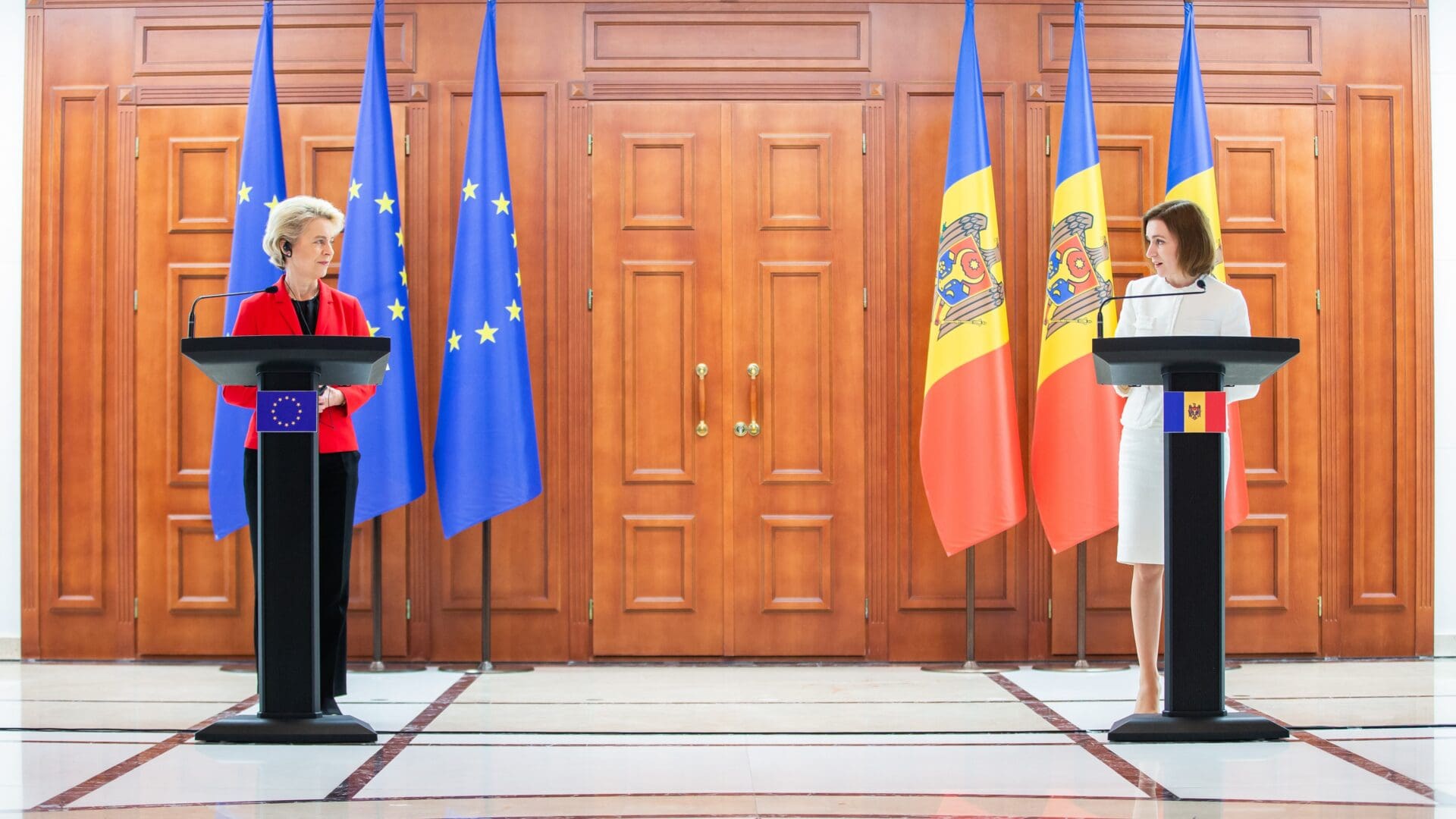A couple of days ago Russian missiles flew over Moldova towards Ukraine. Later, balloon-like objects also violated Moldovan airspace, in response to which Chișinău temporarily closed it airspace on 14 February, rescheduling or delaying dozens of flights, while the neighbouring Romania mobilised its military jets. A similar incident has already occurred in October 2022, when the missiles fires by Russia against Ukraine entered Moldovan airspace. The recent missile incident prompted NATO Secretary General Jens Stoltenberg to discuss possible ways of protecting non-NATO countries such as Moldova, Georgia and Bosnia-Herzegovina from threats coming from Russia.
The violation of Moldovan airspace happened only days after President Zelenskyy uncovered Moscow’s plot to destabilise Moldova. The Moldovan security services also confirmed Russia’s attempt to undermine the sovereignty of the country. Two Moldovan oligarchs—both sanctioned by the US and the UK under the Global Magnitsky Act for their involvement in corruption—were also implicated in the conspiracy and were accused of being the internal forces of the foreign plot. Speaking about the destabilisation plans, President Maia Sandu claimed that Russia was planning to use trained military men ´camouflaged in civilian clothes´ to undertake violent actions and overthrow the government and stop the country’s advancement towards EU accession.
Moldova has been long torn between pro-Russian and pro-EU political sentiments, but since the election of pro-West Maia Sandu the country’s policy has taken a clear turn in favour of EU accession. In 2022, as a reaction to Ukraine’s invasion, Moldova formally applied for EU membership, which Budapest welcomed and pledged to ´support Moldova’s EU integration throughout the process leading to membership´. The country received candidate status on the same day as Ukraine.
Soon after the plot to destabilise Moldova was uncovered, the government in Chișinău collapsed. Pro-EU Prime Minister Natalia Gavrilița faced a number of challenges in her 18 months in office including the economic consequences of the war in Ukraine, rising inflation and soaring prices. The country relied 100 per cent on Russian energy imports, and the unprecedented increase in energy prices since the invasion has led to civil unrest in the country. The outgoing prime minister has nominated her former advisor, Dorin Recean to lead the government, and the Moldovan parliament is scheduled to vote on her proposal next week.
I strongly condemn the violation of 🇲🇩’s airspace by a Russian missile earlier today. #Moldova deserves peace & security, and we will take all necessary steps to achieve it. Our neutral status doesn’t mean we shouldn’t be building up defenses to keep our people safe.
— Maia Sandu (@sandumaiamd) February 10, 2023
While Russia traditionally has a strong influence over Moldova, the Kremlin has increased its readiness to interfere in the country’s politics seeing Chișinău’s progress towards joining the EU. Moscow stations over 1,700 personnel in the separatist Transnistria, and around half of the 500,000 people living in Transnistria have Russian citizenship, which also poses a challenge to the pro-EU administration in Chișinău. Just before the missile violated Moldova’s airspace, the country passed legislation that prohibits separatist activities, as we reported earlier. The Kremlin condemned the so-called Separatism Law, with Moscow claiming that the alleged Russian plot to overthrow the Moldovan government is ´completely unfounded´.
Moldova has also been heavily affected by the large influx of refugees from neighbouring Ukraine. As many migrants travelled on to Romania, Moldova, a country of 2.6 million, saw its border crossings between Moldova and Romania increase to 9.6 million due to the invasion. To better control these border crossings, Bucharest and Chișinău recently reached an agreement in cooperation with the EU border control agency Frontex.







